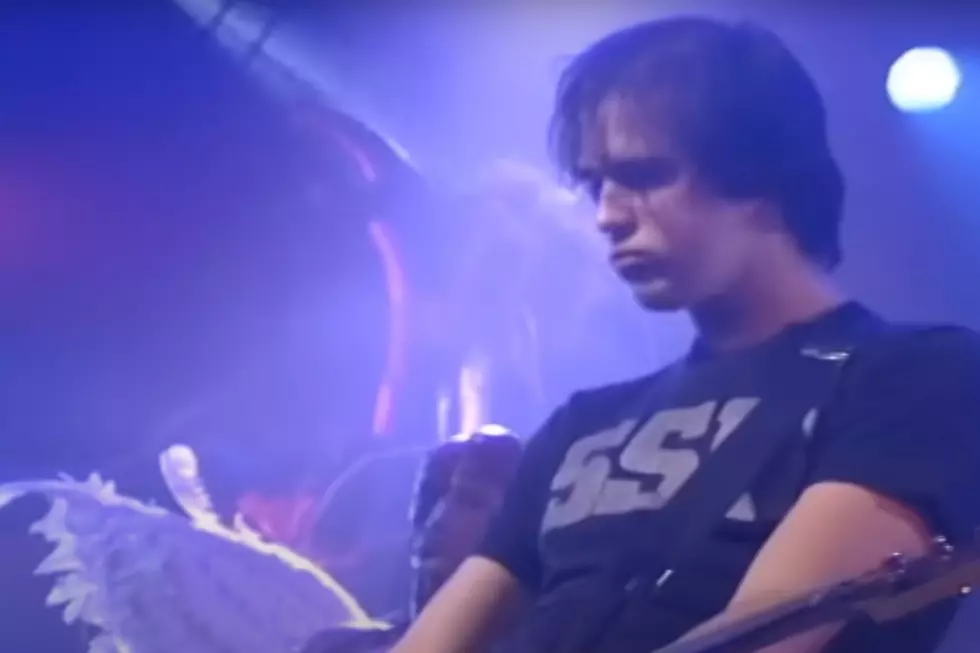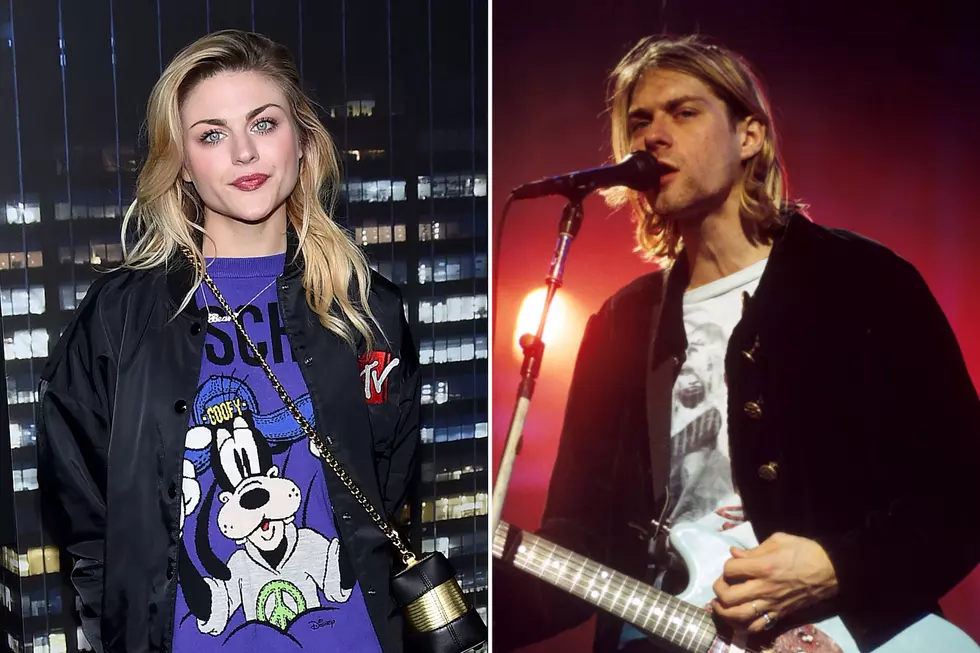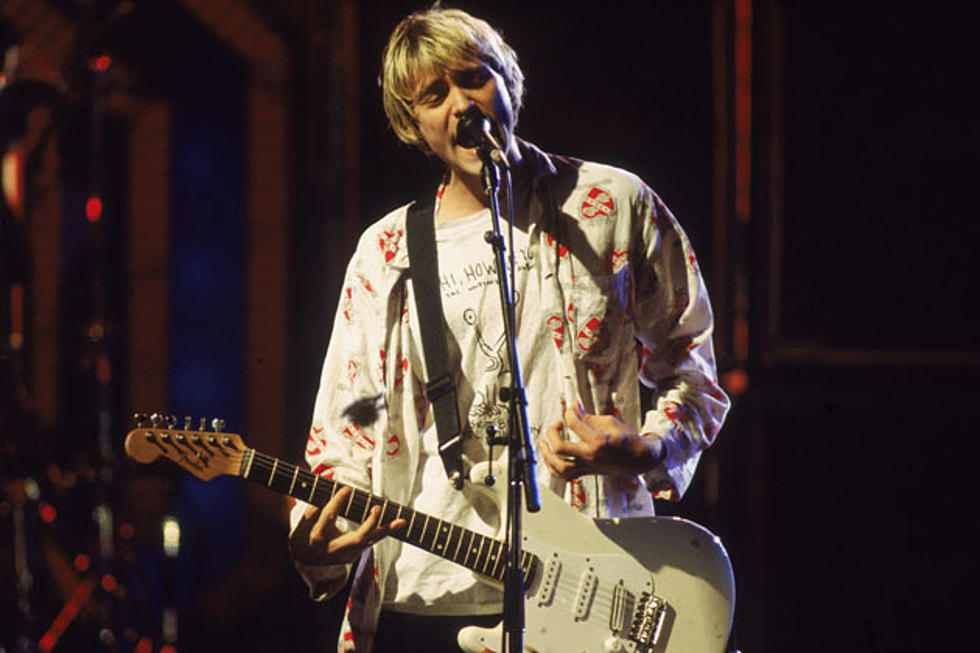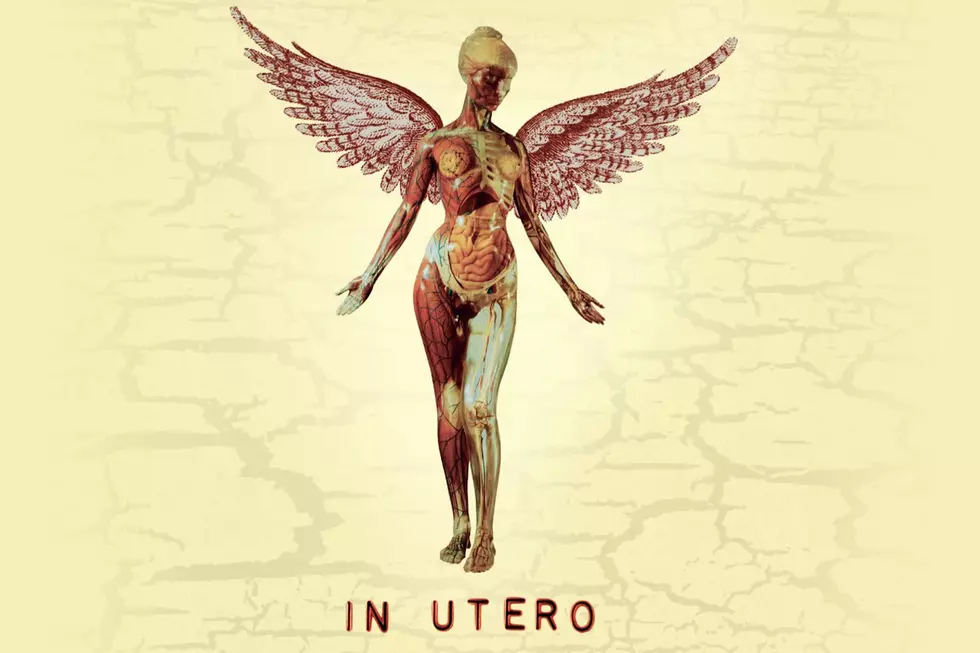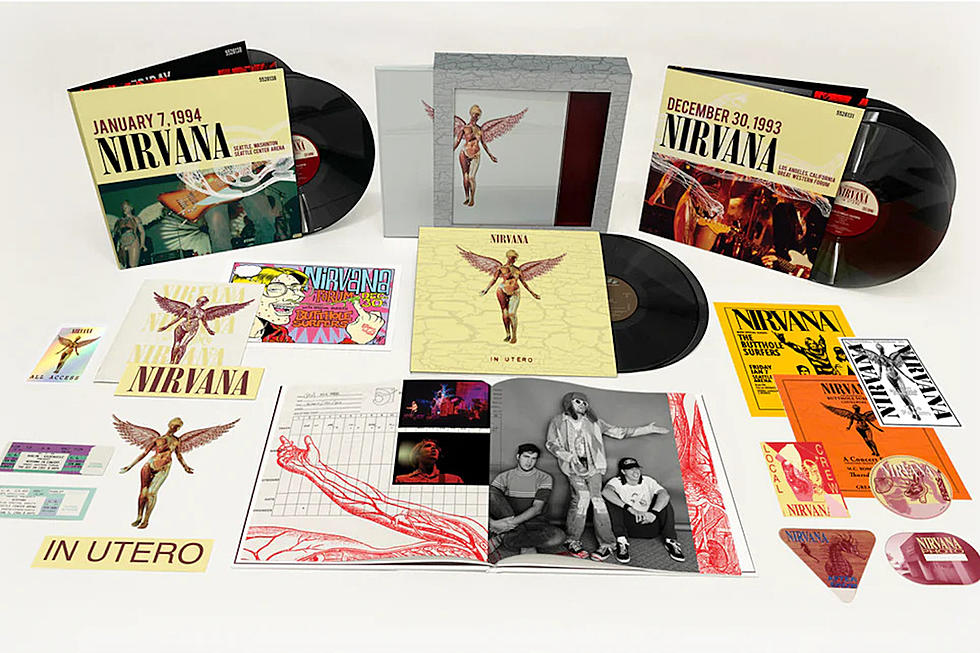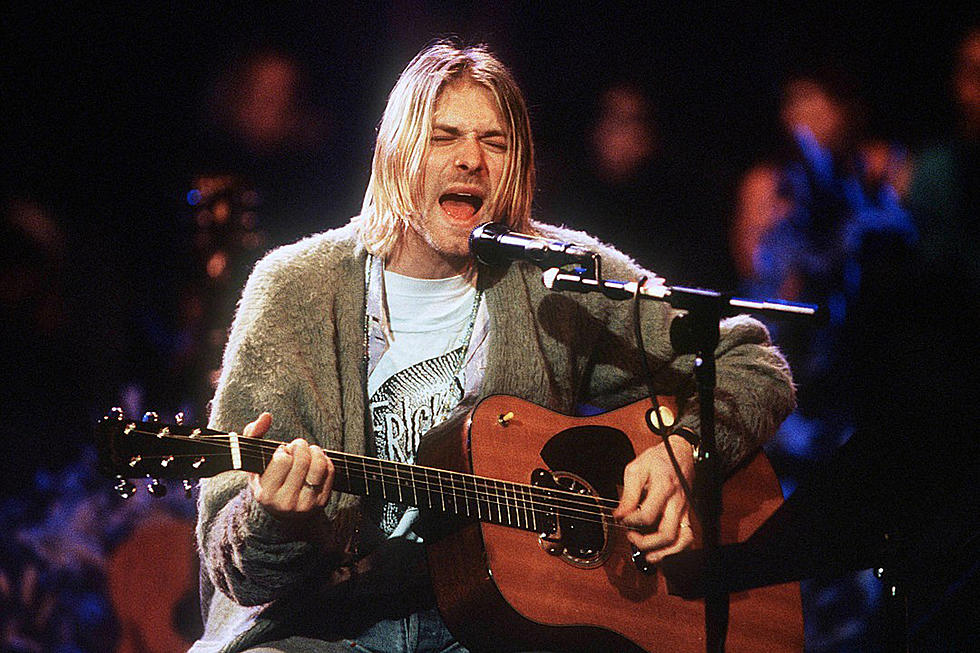
How Kurt Cobain Grew Into a ‘Real-Life Musical Genius': Exclusive Interview
When it comes to the grunge revolution, Danny Goldberg ending up having a front-row seat as part of the management team during the last three and a half years of Nirvana's career. A long history in the entertainment business would prove to be beneficial.
Goldberg career began in the late '60s as a journalist for Billboard magazine (for whom he covered the Woodstock festival), Rolling Stone and other outlets. By the '70s, he was beginning to make his way over to the music business side, working with Led Zeppelin from 1973 until 1975 as their publicist and eventually, the vice president of their Swan Song record label.
He partnered with Stevie Nicks to form Modern Records as a vehicle to release her debut solo album, 1981's Bella Donna. Eventually, he launched his own management company, Gold Mountain Entertainment, building a roster of clients including Bonnie Raitt, the Allman Brothers Band, Sonic Youth and later, Nirvana.
Goldberg's 2019 book Serving the Servant put specific focus on his years working with Kurt Cobain, who died by suicide at age 27 in 1994. "I view his artistry as being far more than a collection of Nirvana's greatest hits," Goldberg wrote, "and believe that he belongs on the highest tier of the rock and roll hierarchy."
Cobain had "splits" in his personality, Goldberg added. "He was a depressive, a junkie and a creative genius. He could be bitterly sarcastic or despairing. But he also had a deeply romantic streak and confidence in the excellence of his art."
Goldberg joined us for a deeper dive into his varied career, including his time in the musical landscape of Seattle and grunge.
You were managing Nirvana in the midst of the whole grunge thing. Looking back, how do you think you saw grunge impact classic and established rock bands?
There was a generational shift. I never loved the word “grunge” and I don’t think Kurt was a big fan of it either. But certainly, he was a product, psychologically, of the '80s American version of punk rock. Black Flag, Dead Kennedys, Sonic Youth, that strain of indie-rock punk, very much coincided with his high school years. That inspired him that there was an authentic, non-polished, non-contrived lane for rock 'n' roll.
Watch Nirvana Perform 'Smells Like Teen Spirit'
MTV had been around for a decade, and the big rock bands were called “hair bands” by a lot of the critics in the late '80s and early '90s because of the way they looked in the videos – and usually there was a fan off-camera blowing the hair. A lot of the guys had obviously spent time in the gym and were showing off their pecs and things like that. It created a lot of energy for rebellion against what people would call corporate rock and corporate rock media. The radio stations certainly were the biggest influence on a lot of what the bands and labels did, because they were the prime curators of what the mass public could hear.
So, there was a pent-up appetite for a new, younger wave of rock. This always happens. I would say a generation in music is four years; it’s the length of high school. People don’t want to listen to the same stuff and have the same heroes. Not only [do they not] want the same heroes that their parents had, they don’t even want the same heroes that their older brothers or sisters had. They want their own thing. You know, there were some artists that were breaking through new avenues. R.E.M. in their own way; Jane’s Addiction in their own way – but Kurt had this genius for songwriting.
[He was an] incredible singer, but he also understood the symbolism and language of the punk culture. He was able to fuse them in a way that changed the definition of what commercial rock 'n' roll was almost overnight when “Smells Like Teen Spirit” came out as the first track [from] Nevermind. I knew that we were part of trying to pull off a generational shift, and that there was this younger audience. There was a younger media. It wasn’t a mass audience; it was the people who collected seven-inch singles and read the fanzines and listened to college radio stations. But usually, what’s avant garde one year, becomes mass culture a few years later.
You can kind of feel that something was going to break through. Fortunately, for those of us that worked for Nirvana, Nirvana was the one that then blew open the doors. After that, very quickly, Pearl Jam, Soundgarden, Soul Asylum, Alice in Chains, Hole, a bunch of other bands speaking the same cultural language, became big rock bands.
Watch Nirvana Perform 'The Man Who Sold the World
Were there any established bands you saw drawing influence musically from what was happening with grunge at the time?
You know, everybody’s influenced by everybody else. I don’t think it was a situation where the Rolling Stones were going to make an album that was going to emulate what Nirvana was doing or anything like that. I mean, artists have to [forge their own path]. At one point, an interviewer asked Kurt, “Do you think you’re going to influence other artists?” He said, “Well, if we have any influence, I hope the influence is for people to have more sincerity.”
I think that the influence was as much cultural as it was musical. You can’t sound like Kurt Cobain – he was the one that God created with that voice – and very few people can write songs like that. But in terms of a cultural attitude, it was sort of refreshing and a throwback to the late '60s in terms of the idea that some artists would see themselves as really artists and not just as entertainers, even if they wanted to also have a successful career. But I think a lot of younger artists were influenced by him and by Nirvana. I don’t think older artists changed what they were doing.
I would have loved to have known more about him as a music fan, if he would have stuck around. What we were able to glean was so interesting. Obviously, he does the David Bowie track and other things on MTV Unplugged. I thought it was cool that he was a Smithereens fan, as well. Like any of us, he was a music fan. I think it would have been great to see him get more of a chance to share more of that with the world.
Yeah, no shit! Well, there’s no question. He loved the cultural [aspects] and identified deeply with the punk culture. But musically, he was a renaissance brain. Obviously, he ended up doing a Leadbelly song on Unplugged as well as the Bowie song. They all loved the Beatles, even though they were way too young to have been around when the Beatles were big and it wasn’t cool to the punk world. They just loved the artistry of it. He was a real-life musical genius, so there’s no telling what he would have done. But I’m so glad he did what he did.
30 Great Quotes About Grunge: How Rockers Reacted to a Revolution
You Think You Know Nirvana?
More From Ultimate Classic Rock
